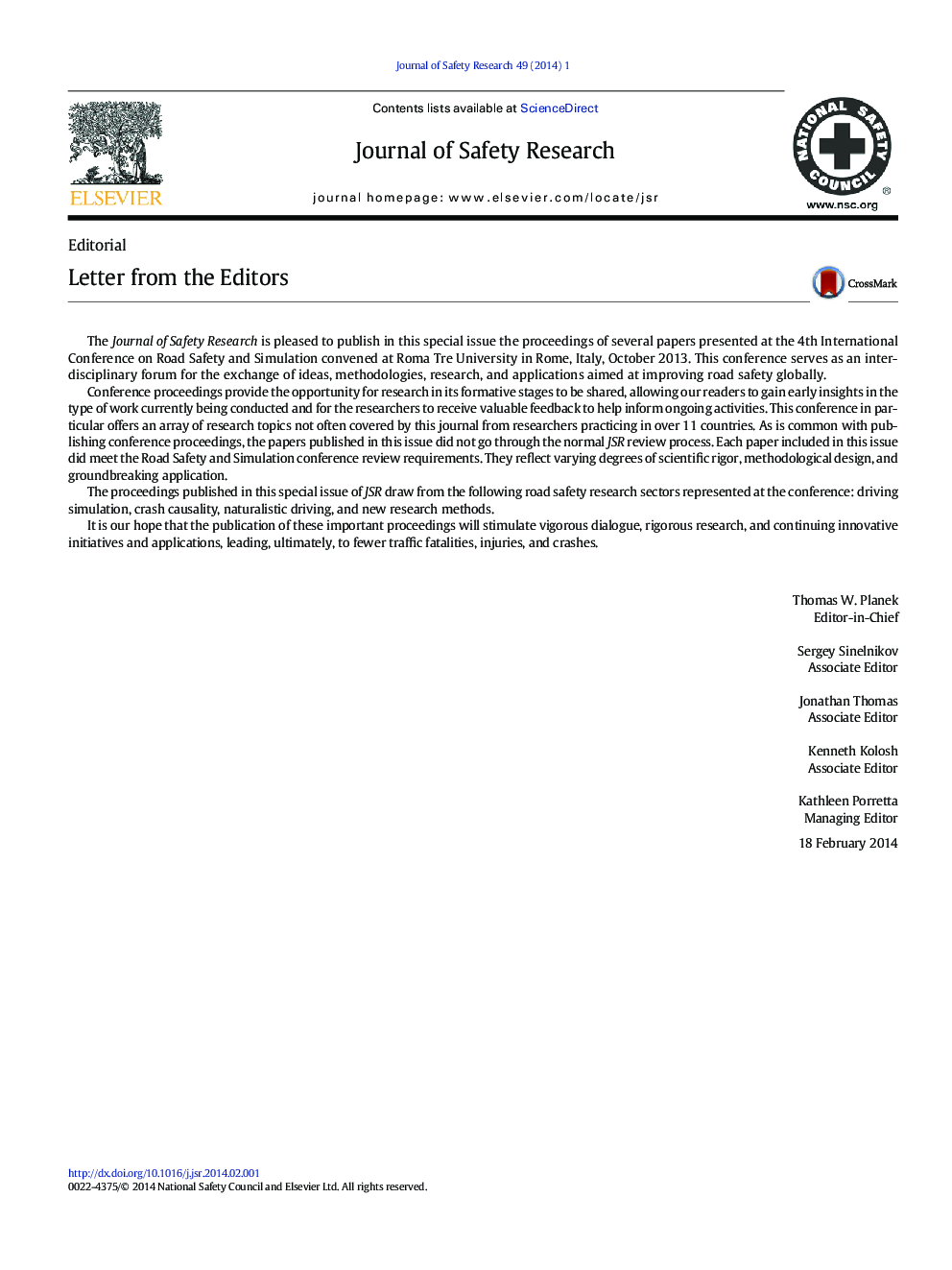| Article ID | Journal | Published Year | Pages | File Type |
|---|---|---|---|---|
| 587413 | Journal of Safety Research | 2014 | 18 Pages |
•Different impact of alcohol depending on driving experience.•Alcohol impairs lateral control of vehicule, independant of driving experience.•Alcohol impairs longitudinal control of vehicule, only for novice drivers.•Alcohol impairs information processing accuracy, but not response time.•Impairment of information processing accuracy in peripheral vision, under alcohol.
IntroductionThe present research evaluates driving impairment linked to divided attention task and alcohol and determines whether it is higher for novice drivers than for experienced drivers.MethodNovice and experienced drivers participated in three experimental sessions in which blood alcohol concentrations (BACs) were 0.0 g/L, 0.2 g/L, and 0.5 g/L. They performed a divided attention task with a main task of car-following task and an additional task of number parity identification. Driving performance, response time and accuracy on the additional task were measured.ResultsANOVA showed a driving impairment and a decrease in additional task performance from a BAC of 0.5 g/L, particularly for novice drivers. Indeed, the latter adopt more risky behavior such as tailgating. In the divided attention task, driving impairment was found for all drivers and impairment on information processing accuracy was highlighted, notably in peripheral vision.Practical applicationsThe divided attention task used here provides a relevant method for identifying the effects of alcohol on cognitive functions and could be used in psychopharmacological research.
